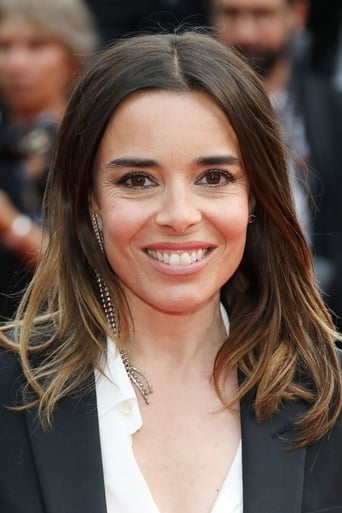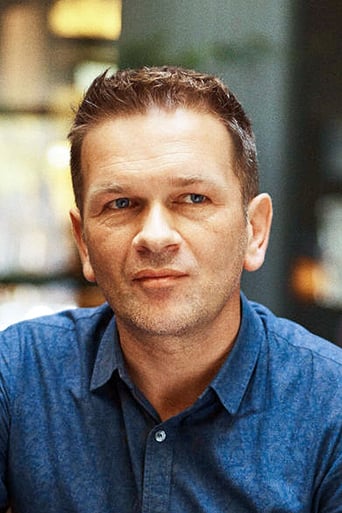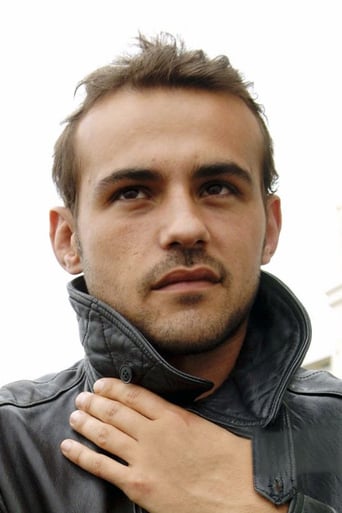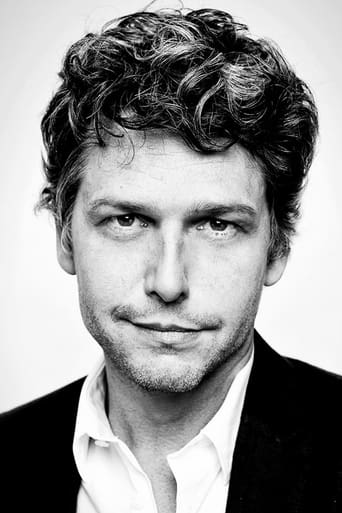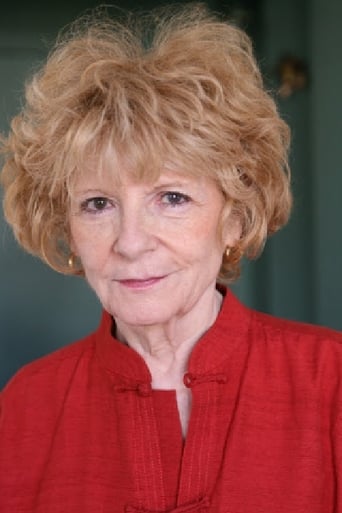Beystiman
It's fun, it's light, [but] it has a hard time when its tries to get heavy.
Huievest
Instead, you get a movie that's enjoyable enough, but leaves you feeling like it could have been much, much more.
Aneesa Wardle
The story, direction, characters, and writing/dialogue is akin to taking a tranquilizer shot to the neck, but everything else was so well done.
Bob Taylor
A superb film from Téchiné. The small town of Villeneuve-sur-Lot is filmed beautifully, the characters are well-drawn, the story moves along believably (not always the case with this director). Gael Morel as François is fresh, ardent and appealing; his love for Serge will not be returned, to his chagrin. Élodie Bouchez impresses us as Maité, who has grown up without a father; in a sense, the Communist Party has become her father. The one sinister character is Mariani the pied-noir: his bigoted notions of life have been formed by his parents and the OAS, he has no real philosophy just an internalized sense of rage at the unfairness of life.There are wonderful scenes. Mme Alvarez, the teacher at the lycée, might help Serge's older brother to desert from the army so he won't have to go back to fight in Algeria, but refuses to do so out of professional pride. Later she hears of the young man's death in combat and falls into a profound depression. The sleep cure is prescribed for her, it's a cure worse than the disease. Mariani has a chance to pass his bac if he works hard (he has already failed it) but working with the teacher Morelli (a pied-noir himself) is forcing him to confront his mental strait-jacket. Since he would rather be wrong in solidarity with his parents than right with these progressive Frenchmen he despises, he abandons his studies. The student-teacher confrontations are sour and hopeless.
limau
Well, actually, I exaggerate, it isn't really too bad, but I just feel obliged to balance off the hyperventilating praises that this film got from so many reviewers.This is a just so-so film that tells the lives and sexual awakenings of four teenagers in a school. The story itself is good, plainly told, and parts of it are well-done, and evocative of the feel at a particular time in history as well as of the confusion that teenagers can feel grappling with their sexuality and love lives.However, there are a number of problems. The acting of the main characters is really rather wooden (although the girl who played Maïté is an exception) - whether they are telling going through a personal crisis or telling an affecting story, there is little change in their expressions. The dialogue is sometimes verging on the silly - do young French people really constantly go round declaiming their thoughts and views in the way they do in this film? If you put some of the dialogue in the mouths of American teenagers and you will see how stupid and pretentious they are, but many reviewers seem to think that since it is French, it must be deep and profound rather than ridiculous.It is a shame that so many lose they critical faculty when judging non-American films. One reviewer claimed that it put 99% of American films to shame, when really, if truth must be told, the vast majority of foreign films are really quite poor, and this one is not an exceptional one. Some, perhaps the great majority, of the astonishing good and imaginative films in recent times comes out of America, while those from elsewhere often get stuck in retreading old stuff and mire in mediocrity. The awarding of the Palme D'Or this year to Ken Loach's utterly second-rate The Wind That Shakes the Barley is perhaps the ultimate example of this kind of blindness.
Dennis Littrell
The slightly loose and episodic feel of this charming coming-of-ager doesn't matter because the characters and the conflicts are so well presented that we are enthralled throughout.Three boys on the verge of manhood (with the French-Algerian conflict smoldering in the background) are in residence at a boarding school in the south of France in 1962. One is gay, the second is bi-sexual and the third is straight. Through their interactions we (and they) discover their sexuality.Francois Forestier, played attractively by Gael Morel, is gay as he discovers one night when Serge Bartolo (Stephane Rideau), an athletic schoolmate with a natural style, awakens his sexuality by seducing him. For Serge it is just a school age sexual adventure; for Francois it is love so intense he is transformed. The third boy, Henri Mariana, who is from Algeria, is a little older and a little more cynical. He finds heterosexual love with his enemy, Maité Alverez, who is a hated communist. Elodie Bouchez, whom I recall from The Dreamlife of Angels (1998) for which she shared a Cannes Best Actress award, plays Maité whose style is earnest, witty and brave.As it happens I was in France during the period of this film, and a teenager as well. The Algerian conflict haunted the young men because as soon as they were of age they could be sent away to fight. Also the Communist Party was strong in France and an attraction to some who opposed what they saw as French colonialism in Algeria and Vietnam. Director André Téchiné who characteristically explores human sexuality in his films (e.g., Rendez-Vous (1985) with a young and vital Juliette Binoche; Le lieu du crime (1986) with Catherine Deneuve; and Ma Saison Préférée (1993) also starring Catherine Deneuve) attempts to integrate these larger issues into his film but I don't think is entirely successful. Serge's older brother is killed in Algeria and his teacher blames herself for not helping him to escape his military service and suffers a nervous breakdown. However this story is not well-connected with the rest of the film. Also more could have been done with the divergent views of Maité and Henri. What I loved was the club scene where suddenly the French girls are twisting to Chubby Checker's "Let's Twist Again" which propelled me back to 1962 when indeed the Twist was all the rage in France.What makes this film superior is the warm and truthful way in which the sexual awakenings are realized. The kids seem absolutely real and the dialogue is sharp and authentic. Morel is very winning. I especially liked the earnest way he confronts and then accepts his sexuality. Interesting was the scene in which he seeks out the shoe salesman whom he knows is gay for his advice on how he should cope with unrequited homosexual love.This is a film about young people for open-minded adults attractively done. For many it will strike a strong cord of recognition.(Note: Over 500 of my movie reviews are now available in my book "Cut to the Chaise Lounge or I Can't Believe I Swallowed the Remote!" Get it at Amazon!)
Paul Lefebvre
Director Techine once again has made a beautiful movie, this time concerning a group of teenage friends in southern France in the early 1960's. Techine uses the Algerian war as a catalyst for the interaction between the 4 friends. As the movie unfolds, each friend discovers how they're involved with one another, in dramatizatons that the French are so good at. Techine makes good use of the idyllic, pastoral French Pyrenee countryside to compliment the personal dramas unfolding in it. You can almost smell and feel the summertime around you. A touchingly-done coming-of-age film for all ages, not just teens. So successful was the pairing of Rideau and Bouchez that they went on to make several other movies together, one of which was directed by Gael Morel, one of the stars in this movie as well.

